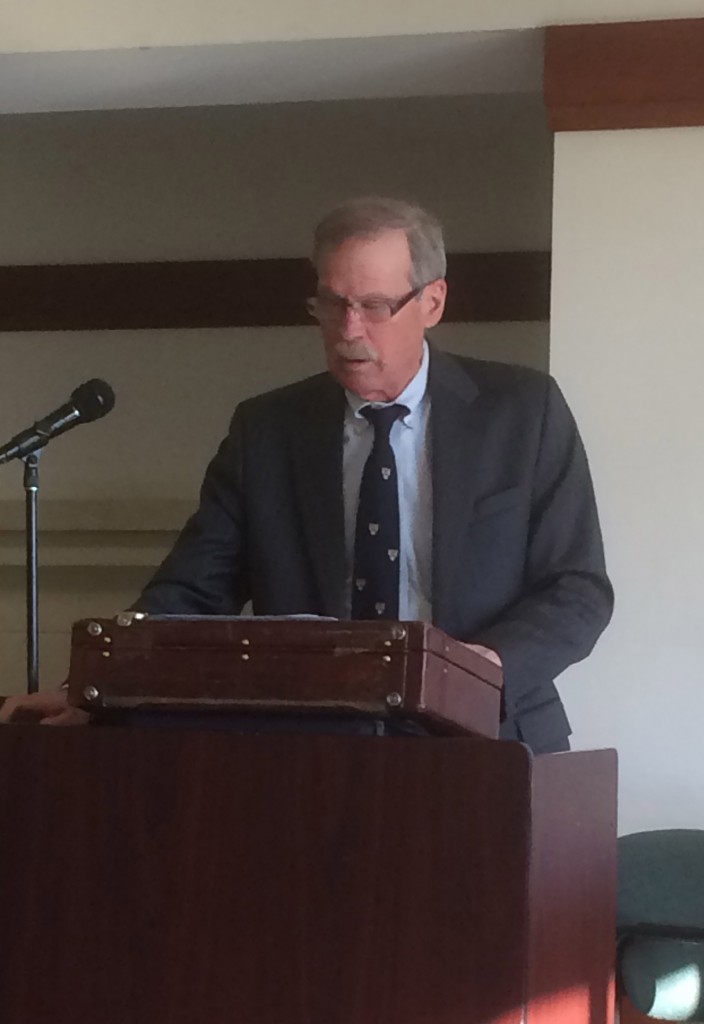Pulitzer-Prize winner Dr. Walter McDougall was invited by Agora Institute to speak at Eastern University on Wednesday, Feb. 15 and by the Templeton Honors College to speak at their weekly Honors Forum on Friday, Feb. 17. McDougall is currently Professor of History and Alloy-Ansin Professor of International Relations at the University of Pennsylvania. He received his bachelor’s degree from Amherst College and his master’s and doctorate from the University of Chicago. McDougall honorably served in the U.S. Army during the Vietnam Conflict. He has received multiple fellowships and awards and published several books, including “The Tragedy of U.S. Foreign Policy: How America’s Civil Religion Betrayed the National Interest” (2016) and “The Heavens and the Earth: A Political History of the Space Age” (1985), for which he was awarded his Pulitzer Prize. His varied life experiences and academic background explain why he is one of the foremost historians in America.
At the Agora lecture, McDougall spoke on “American Civil Religion: Its Problematical Relationship With Biblical Religion and Especially Its Nefarious Influence on U.S. Foreign Policy in Our History.” At Honors Forum he took on a slightly different theme within the same topic by focusing on American Civil Religion and the faith and practice of President Donald Trump. Both of McDougall’s lectures were based upon the notion of “American Civil Religion” (ACR). McDougall defined the ACR and its relationship with the presidency during his Honors Forum lecture:
“The ACR…was first described by sociologist Robert Bellah 50 years ago. What Bellah meant by civil religion was the general belief in a transcendent, spiritual reality guiding the nation through space and time like God led the Israelites, a cult embodied in myth, ritual and symbol, and a vaguely Unitarian faith ritually invoked by its presidents and other leaders. That transcendent, spiritual reality is what distinguishes civil religion from nationalism and other secular ideologies. Americans never worshiped their government, a fact made palpable by the checks and balances of their Constitution. Rather, they worshiped the deity who made them one out of many (e pluribus unum), a new order for the ages (novus ordo seclorum) and blessed their undertakings (annuit coeptis). Consider it a divine right republicanism that replaced divine right of kings.
However, since Bellah did not delve deeply into the phases of American history, he missed the fact that at least three ACRs, or competing orthodoxies, evolved over time as the nation grew into a world power and various sectors came to dominate its economy’s commanding heights.”
McDougall noted these examples: 1) Pre-Industrial Era: Classical ACR, 2) Industrial Revolution Era: Progressive ACR, 3) Cold War Era: Militant ACR.
McDougall concluded his lecture by stating: “The pretense of global civil religion as defined by globalization, open borders, multiculturalism, political correctness and too often apostasy may well be challenged by some form of resurgent American Civil Religion, with unpredictable consequences for church and state.”
For a complete version of McDougall’s lectures please see his blog post at http://www.fpri.org/article/2017/02/donald-trump-believe-american-civil-religion-one/.
The Eastern community extends its thanks to Dr. McDougall for the time he took to share his insights on American foreign policy and the presidency.
Sources: Walter McDougall, fpri.org

